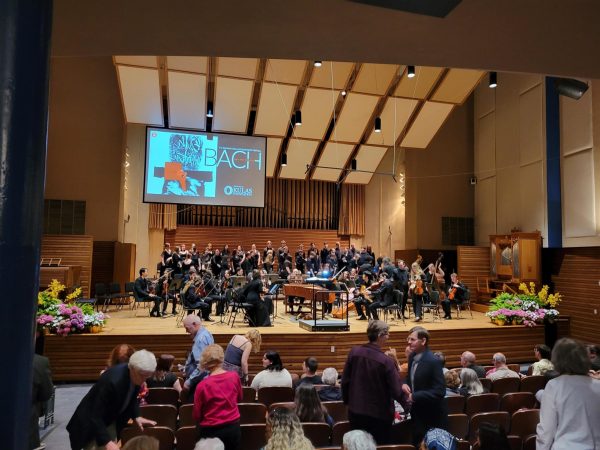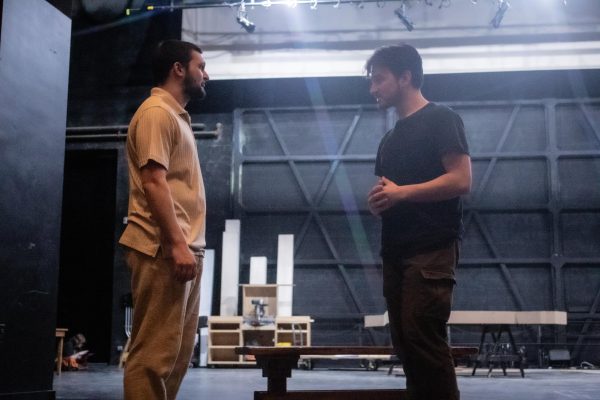Playwright lecture aids theatre students in dramaturgy efforts
The Department of Theatre and Dance hosted a two-day residency, including a workshop and a lecture on the play “Marisol” by José Rivera.
Mr. Carlos Salazar, a theatre artist and scholar currently pursuing a Ph.D. in theatre history and theory at the University of Washington, is also a dramaturg and while on campus he led a dramaturgy workshop on the play.
A dramaturg completes research and helps to inform actors of their role’s background and ensuring historical accuracy for a production. In this workshop, students learned how to be their own dramaturg when no one is in the room, said Hunter.
In his lecture, Salazar talked about the influence of Latin American culture on the play “Marisol,” specifically through the use of magical realism.
To start the lecture, Salazar starts with the topic of ‘what is Latin America?’ Salazar argues that Latin America is a more significant, complex and interesting concept.
Latin America comes from a post-colonial world because of imperialism and domination by countries such as Spain, and because of this mix of ancestry the mestizo culture was formed, said Dr. Les Hunter, assistant professor of English. Through imperialism and colonization, he said, a new cultural logic implanted itself and an entire world structure was altered.
“Latinos’ experiences often define from ‘without;’ other people are saying this is what that is and I think part of his project is a self-definition, said Hunter. This is who we are, this is what we do.”
This point brought up magical realism, which is linked to Latin America and is at the core of their own popular culture and social interaction, said Salazar.
Magical realism has two elements, he said, including religious syncretism, which is a clash of religions that occurred with a European template and an indigenous revival, and the culture of the carnivalesque.
“In the Latin American world, magical realism arises as a way to make sense of a world that does not make sense,” said Hunter.
Magical realism is present throughout the play “Marisol,” a common theme in Rivera’s plays. “Marisol” is a clear example of the evolution and growth magical realism had to have in the Latino theatre in the United States, said Salazar.
José Rivera, he said, was born in San Juan, Puerto Rico in 1955 into a Catholic and conservative family. He and his family immigrated to the United States when he was 4 years old, and being bi-lingual and bi-cultural contributed to his identity.
“He is one of the most important Latino writers of his generation,” said Salazar. “Next to names such as Caridad Svich, Karen Zacarías, or Nilo Cruz.”
Marisol had its world premiere in 1992 in Louisville, KY, becoming his first acclaimed work, said Salazar.
The Exponent is looking for financial contributions to support our staff and our newsroom in producing high-quality, well-reported and accurate journalism. Thank you for taking the time to consider supporting our student journalists.












































